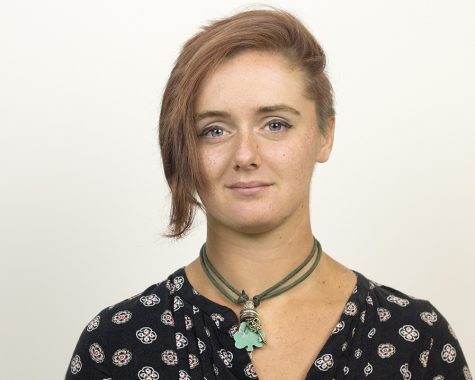Value-finding plays integral role in teaching
October 25, 2017
A few semesters ago, I took my last education foundations class with Dr. Barker, the most lovable, eccentric ex-radio host in the education department. His classes were populated with students across majors, basking in the respite of his calm outlook on life and using his class periods to unwind from their busy schedules as he made education make sense.
Dr. Barker is a major disciple of John Dewey, a late 19th– and early 20th-century education reformer whose ideas drove the progressive education movement and still guide its processes today—anyone who has ever spent time with Dr. Barker knows Dewey’s philosophies intimately. But for me, Dr. Barker was the inroad to a few other ideas that molded how I think of education and my place in the classroom.
In his upper-level foundations class, Dr. Barker asked us to understand philosophy. We looked into philosophical cosmology, epistemology, metaphysics and other branches of thought that many of my classmates had never been introduced to before. According to him, we had to understand what we thought of ourselves, our place in the universe and even what the universe was before we could begin to teach.
For some students, exploring the nature of being was unrelated to their desire to teach. Why did they need to know what they thought of God, of what the floor was made of, of what even constituted a floor, when their ultimate goal was to help high school students balance checkbooks and cook nutritious meals? What does the nature of truth have to do with chemical reactions? And for a little while, the pragmatist that I am, I was in their camp.
But then we moved on to axiology. It was a branch of philosophy that immediately struck me: as the study of value and value-defining, it seemed right up my alley. We worked through the definition and discussed why value might be important in education.
And suddenly, everything fell into place.
I had to start with the end in mind, and my understanding of value was where the end began. It was the necessary end of backwards design; before I could give students lessons, I had to know the assignments. Before the assignments, the assessments. Before the assessments, the goals of my role in education.
And before my role in education, the role of education as a whole.
I worked out my values; I found that I valued civics and interpersonal connections and flexible, reflective citizenship over anything traditionally considered English content. At the end of the day, reading, writing, speaking and listening were all means to an end for me—they were the skills needed to enact citizenship and to create the best world possible. I understood where all my educational goals had been leading my students and where they needed to go in the future.
Recently, I thought about my value system again, and I noticed that I needed to update it. Not every student would have the same values as me. Some people want answers at the end of the day. Some students will be focused on life-or-death considerations, not thrive-or-struggle issues like me, and I needed to be flexible enough to accommodate them. No student should be put off from my class just because our axiologies misalign.
And to be honest, I do not have the repairs finished. As I write, I am still mulling over ways to bend my values to fit others. I want my students to thrive, but I still want my values and end goals to be fulfilled.
At the very least, though, asking is the first step.
Shelby Niehaus is a senior English language arts major. She can be reached at 581-2812 or scniehaus@eiu.edu.

















![[Thumbnail Edition] Senior Foward Macy McGlone, getsw the ball and gets the point during the first half of the game aginst Western Illinois University,, Eastern Illinois University Lost to Western Illinois University Thursday March 6 20205, 78-75 EIU lost making it the end of their season](https://www.dailyeasternnews.com/wp-content/uploads/2025/03/WBB_OVC_03_O-1-e1743361637111-1200x614.jpg)




















































